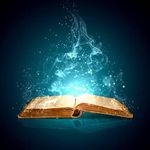ENGL 1102/Reading Questions for Poetry: Difference between revisions
m (Grlucas moved page Reading Questions for Poetry to ENGL 1102/Reading Questions for Poetry) |
(Update.) |
||
| Line 1: | Line 1: | ||
{{DISPLAYTITLE:<span style="font-size:22px; color:#B2BABB;">{{BASEPAGENAME}}/</span>{{SUBPAGENAME}}}} | |||
{{dc|P}}{{start|oetry provides insights into the human experience}} and the different ways in which people express themselves. Poetry gives insights to different cultures and historical periods, and can help develop an appreciation for the nuances of language and the power of words. Poetry can also help develop critical thinking and analytical skills since it requires close reading and interpretation, and often contains multiple meanings and perspectives. Additionally, poetry can be a source of inspiration and creativity, which can be beneficial to students in various academic fields. | |||
Reading poetry is an essential part of understanding literary and cultural movements, and is an important way to gain knowledge and perspective on the literary tradition of a language or culture. | |||
Consider the following questions while reading or rereading poetry. | |||
# What do you know about speaker of this poem? | # What do you know about speaker of this poem? | ||
# Describe what is happening. What is the poem's central idea? | # Describe what is happening. What is the poem's central idea? | ||
| Line 8: | Line 15: | ||
# Are there any meaningful sound repetitions? | # Are there any meaningful sound repetitions? | ||
# How would you identify the poem's meter and rhyme scheme(s)? | # How would you identify the poem's meter and rhyme scheme(s)? | ||
{{ENGL 1102}} | |||
[[Category:Literary]] | [[Category:Literary]] | ||
[[Category:Lit Study Guides]] | [[Category:Lit Study Guides]] | ||
[[Category:Prompts]] | [[Category:Prompts]] | ||
Revision as of 09:05, 17 January 2023
Poetry provides insights into the human experience and the different ways in which people express themselves. Poetry gives insights to different cultures and historical periods, and can help develop an appreciation for the nuances of language and the power of words. Poetry can also help develop critical thinking and analytical skills since it requires close reading and interpretation, and often contains multiple meanings and perspectives. Additionally, poetry can be a source of inspiration and creativity, which can be beneficial to students in various academic fields.
Reading poetry is an essential part of understanding literary and cultural movements, and is an important way to gain knowledge and perspective on the literary tradition of a language or culture.
Consider the following questions while reading or rereading poetry.
- What do you know about speaker of this poem?
- Describe what is happening. What is the poem's central idea?
- What is the dominant tone or mood of the poem? How is it achieved?
- How would you describe the language of this poem?
- What words or phrases in the poem do you find especially effective?
- List some examples of figurative language (similes, metaphors, personification, metonomy). How do these devices relate to the theme of the poem?
- Does the poem include hyperbole, irony, or understatement? Give examples.
- Are there any meaningful sound repetitions?
- How would you identify the poem's meter and rhyme scheme(s)?
